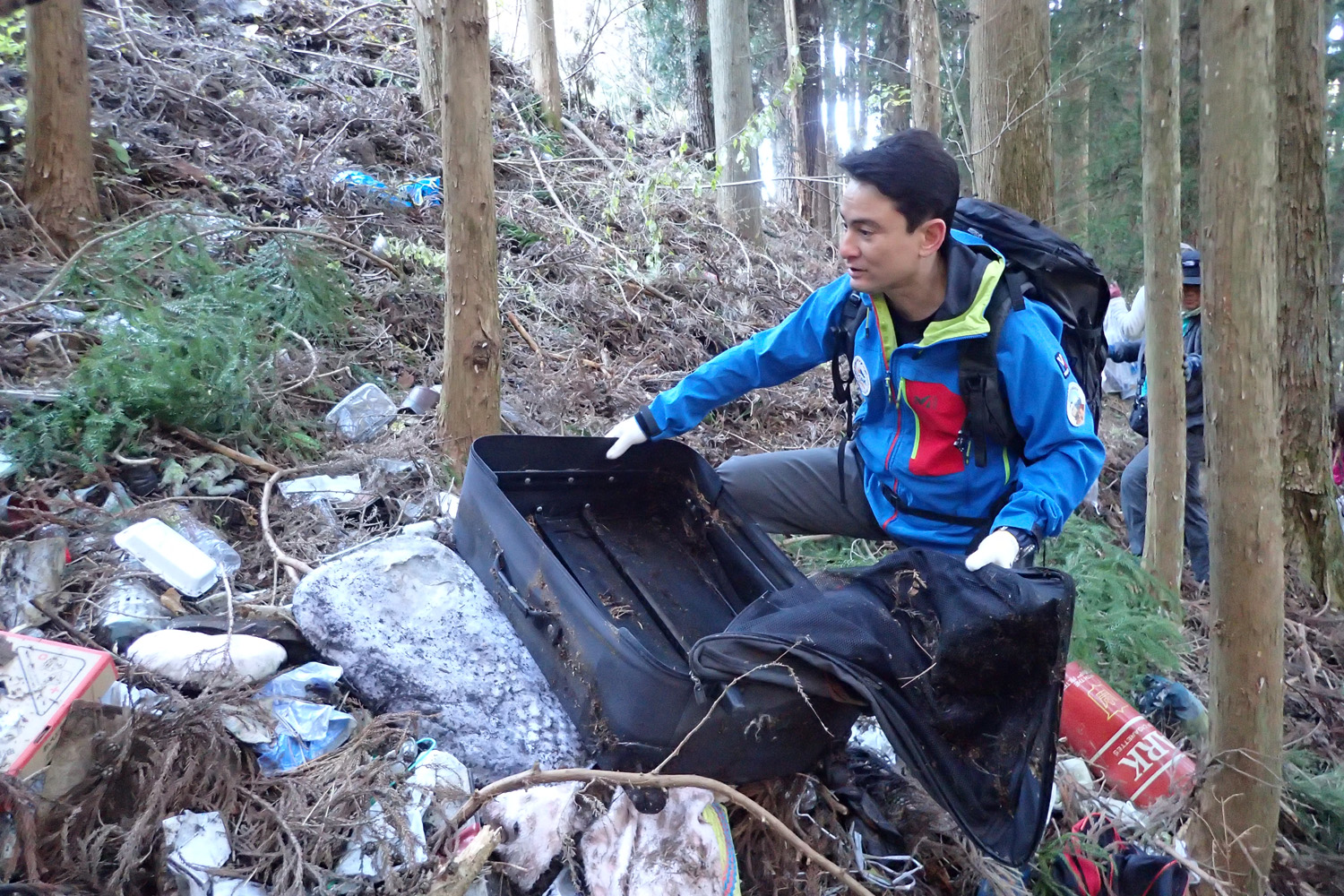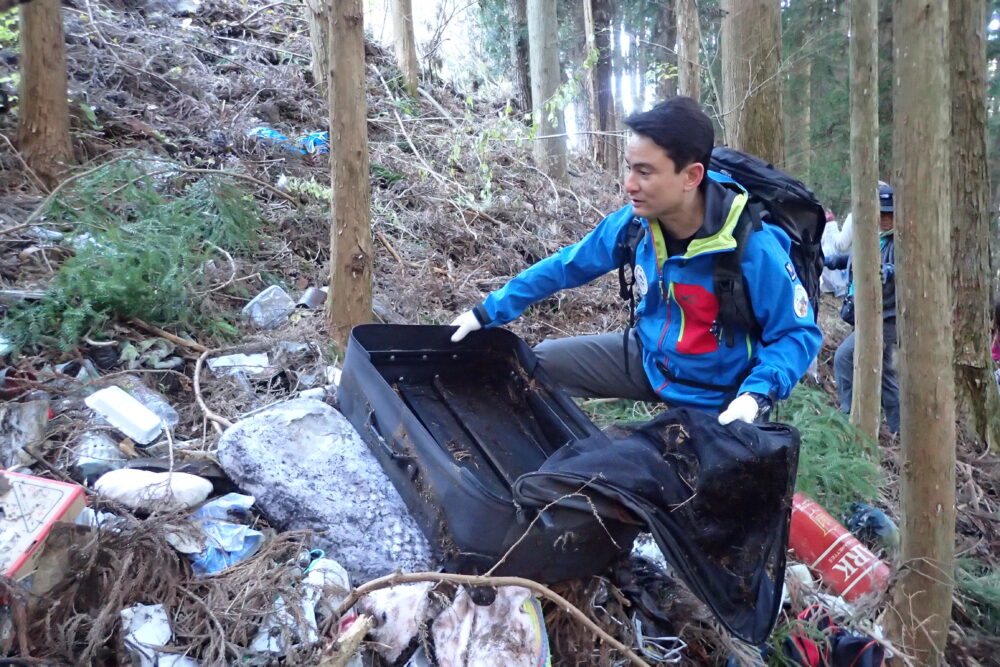The solution to environmental issues is maintaining a sound balance between lifestyle and nature
- The cleanup activities on Mount Fuji began in 2000. Again, the impetus for this came from my global mountaineering friends who kept saying, “Are you going to make the Himalayas look like Mount Fuji?” At first, I had no idea what they were talking about. This is because we mountaineers typically climb Mount Fuji in the winter, when all the trash is hidden under snow and ice. But when I went there in summer for the first time and witnessed the heavy traffic of climbers and the mounds of trash, I finally understood. Since then, for over twenty years I have been involved in addressing the cleanup situation on Mount Fuji, and have helped replace all of the toilets in the mountain huts with bio-or incinerating toilets. One lesson I learned through all this is that environmental activities that do sustain our lifestyle as human beings will not last long. Environmental issues can’t be boiled down to either preservation or destruction; as humans, we need to figure out how to benefit from the earth’s resources while maintaining a sound balance. In that respect, I was impressed to hear that 100 percent of this hotel’s electricity is derived from hydrogen and food waste recycling, and that it has succeeded in maintaining a perfect balance between the functionality of a comfortable hotel and environmental problem-solving.
- The frequency of rain and avalanches in the Himalayas in recent years gives us cause for concern about global warming. Putting a complete stop to the warming phenomenon is difficult. Instead, my view is that we should create resilient humans who can withstand the increasingly frequent torrential downpours and other global warming-related disasters. To achieve this, we must experience nature. In nature, you often go through “mini crises.” An example of this is being caught in a sudden downpour and feeling chilly in your drenched cotton clothes. Or perhaps you forgot to dig a trench around your tent causing water to seep in, or you climb too far up a tree and feel deathly afraid. You could say that in times of disaster, you’re having the ultimate outdoor experience. If you’ve already lived through mini crises like these, your ability to survive them becomes fortified, so you immediately know what to do.
- I also think that having a connection to nature leads to a heightened interest in environmental issues. You need an understanding of nature to care; simply learning about the issues on a theoretical level won’t make you want to protect the earth’s environment from the bottom of your heart. That’s why I host environment events for elementary school students in places like Soja City, Okayama Prefecture, where I invite students to hike up a mountain and pick up trash as a way of getting them to think about the environment. In the future, I want to help not only children but adults develop resilience against the earth’s crises by interacting with nature in various ways, and encourage them to take action by experiencing some of the environmental issues first-hand.

When you’re traveling, you often come across a turning point for your life and future
- For me, traveling, including things like my Himalayan expeditions, represents all kinds of turning points. In fact, I was traveling when I decided to become a mountaineer. When I was in high school, I caused a problem that led to a one-month suspension. My father told me to travel somewhere and do some walking, so I chose Kyoto. The suspension put me in a terrible mood, but as I walked through a city I’d never been to before, I began to feel that I was capable of achieving something in life. I happened to walk into a bookstore and came across Naomi Uemura’s book “Seishun O Yama Ni Kakete” (“Staking My Youth on Mountains”). When I learned that the first-ever Japanese man to successfully reach Mount Everest’s summit achieved this not out of a burning ambition to get there first, but as a result of steadily building on what he can do in the present, it made me feel as though I might also be able to do something if I kept steadily at it. So the trip was indeed a turning point in my life.
- Turning points come when I’m standing on the peak of a mountain, too. Sometimes when I’m there, gazing at the view in front of me, a new target suddenly pops into my mind. When I stood on the summit of Shishapangma, which is around 8000 meters tall, I found myself uttering the words “Next is Manaslu!” Achieving a goal allows you to move onto the next destination, and for me, the peak of a mountain represents such turning points.
- I had to give up the Manaslu expedition because the basecamp was hit by an avalanche, but I hope to one day climb to the summit so that I can close that chapter on my own terms. But who knows – once I’m up there, I may end up setting my next target.









